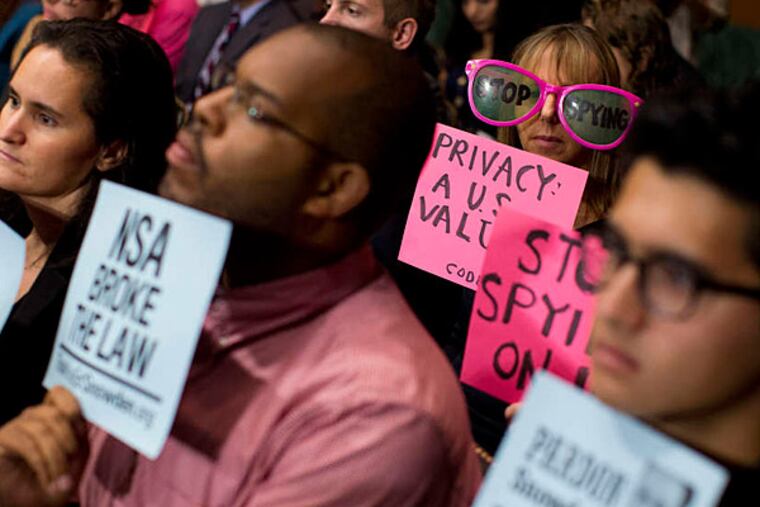Apparent confirmation of NSA's cellphone data
Sen. Feinstein indicates that users' locations are monitored.

WASHINGTON - Sen. Dianne Feinstein, the chair of the Senate Intelligence Committee and a staunch defender of the National Security Agency's data collection programs, appeared Wednesday to confirm that the NSA is gathering information on where Americans are when they use their cellphones - something NSA officials repeatedly have denied in public.
The apparent confirmation, which may have been inadvertent, came during a Senate Judiciary Committee hearing on the NSA program. Feinstein (D., Calif.) is also a member of that panel.
"I've listened to this program being described as a surveillance program. It is not," Feinstein said. "There is no content collected by the NSA. There are bits of data - location, telephone numbers - that can be queried when there is reasonable and articulable suspicion."
Whether the United States is collecting so-called location data has become a contentious issue in the debate over the NSA's programs, one of which requires U.S. cellphone companies to provide the NSA with daily records of Americans' cellphone usage, including numbers called and how long those calls last.
The NSA has denied, however, that the data include phone locations - information that some privacy advocates claim is far more useful to tracking an individual's activities than listening in on conversations, because the phone's location is recorded even when it is not in use.
Just last week, the NSA director, Gen. Keith Alexander, denied that the NSA was collecting location data in response to a question by Sen. Ron Wyden (D., Ore.) during a Intelligence Committee hearing that Feinstein chaired.
But Alexander also was careful to restrict his answer to programs authorized under Section 215 of the USA Patriot Act. When Wyden, a critic of the NSA, persisted, Alexander read a prepared statement in which he declined to answer in open session.
At Wednesday's judiciary hearing, Alexander used the same formulation in denying that the NSA was collecting location data under the Patriot Act.
"As NSA has previously reported . . . NSA does not collect location information under Section 215 under the Patriot Act," he said. Alexander added, however, that in 2010 to 2011 the NSA did experiment with collecting cellphone location data, but he added that currently the agency does not collect the information "under Section 215."
The conflict between Alexander's statement and Feinstein's suggests that NSA programs operating outside the Patriot Act and the Foreign Intelligence Surveillance Act may be collecting more information on Americans than the public has been led to believe.